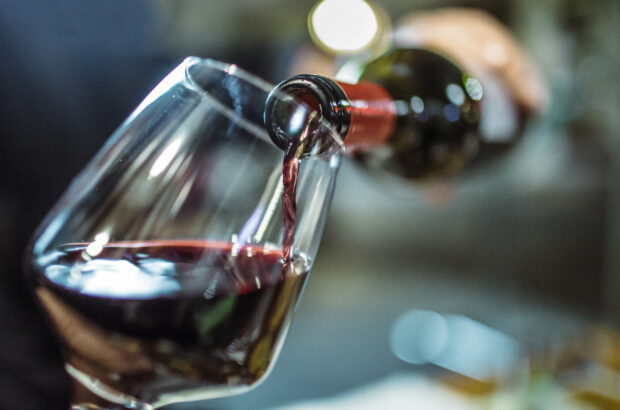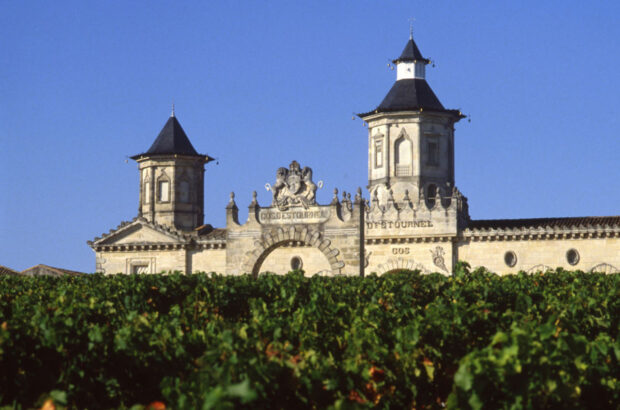Grant Burge experienced ‘bitter failure’ with the sale of Krondorf Winery in the 1980s. Now he’s convinced the only way to build a premium wine company is to take the private route. JOHN STIMPFIG talks to the man who has no price
Grant Burge was not, it has to be said, in the best humour when we met for our interview. The poor bloke was not only jet-lagged but also suffering from a severe bout of flu picked up in New York. So just to make him feel better, I go and ask him about the rumours that he might be selling out to Allied Lyons after its failed takeover bid for Peter Lehmann Wines.
‘Aaaaaw look,’ he replies, rolling his eyes. ‘That was just something that was got up in the Australian press as to who might be Allied’s next target. We got mentioned quite a lot because we’re a reasonable-sized company with a well-known brand that is going places. But the rumours only lasted a week because I quickly scotched them with my standard one-liner on the subject. That is, “We are not for sale and have no interest in selling.” End of story.’
Nonetheless, you can understand how Grant Burge Wines has become so newsworthy in the financial pages as well as the wine press. It is, after all, one of the biggest, most profitable and highly regarded private wine companies in Australia. Its assets include over 400ha (hectares) of prime Barossa Valley vineyards and some superb brands. These range from the commercial Barossa Vines to the premium Single Vineyard Range and its cult-like trio of Meshach, Shadrach and The Holy Trinity. Not only that, but it produces over 400,000 cases per annum and has won virtually every Australian medal you care to name. No wonder the boardroom carpetbaggers have been sniffing around.
Over the years, an awful lot of people have approached Burge with offers they thought he couldn’t refuse. But that’s exactly what he has done, time and time again. And frankly he’s getting a bit frustrated that he can’t seem to get the message across. ‘The problem is that people think that everyone has a price. Well, I don’t because I’m building this business up for my family. So my kids will be the ones to decide about selling it, not me. I don’t want to think about it, let alone talk about it.’
Of course, one obvious reason why he refuses to sell is because he’s taken the ‘public’ route before with the old Krondorf Winery, back in the early 1980s. But just like Peter Lehmann, Len Evans, James Halliday, Brian Croser and Andrew Pirie, he lost
control of everything he once held dear. ‘When I was on the board at Krondorf, we had 70% of all the shares. So I thought we could have a public company and still
control our own destiny.’ He couldn’t. In the end, Burge was forced to sell to the Mildara Group for Au$6m (£2.26m) in 1986.
It wasn’t all bad. Burge, who is a canny businessman as well as a highly talented winemaker, made a packet in the process. ‘But money isn’t what really motivates me. Because even though I did very well financially, I was absolutely mortified to see the company disintegrating after we put so much effort into developing it. Even today, I still think of it as a bitter failure.’
Perhaps this is why Burge is so evangelical about the benefits of staying private. Having lost the corporate reins once, he’s clearly not about to make the same mistake again. But Burge insists there’s more to it than that, not least because he also believes there are wider implications for the Australian wine industry. For instance, he argues that the current bout of mergers and acquisitions are not doing ‘Brand Australia’ any favours. Instead, this global merry-go-round will only lead to a compromise of its traditional values and philosophies. ‘They may even challenge the foundation of our success – our Australian-ness.’
You could of course argue that Australia should be flattered by all the attention of the big corporate predators. ‘I suppose on one level it shows how successful we have become,’ says Burge. ‘But on the other, it really depresses me that we have this
natural resource that has taken a long time to develop and deliver. And now, just as we have started to be successful at it, we seem to lack the fortitude to hang on to it because everyone seems to be out for short-term gain.’
His other concern is that a lot of the fallout hasn’t even started yet. ‘After all, Constellation has only just bought Hardy’s, and the same is true of Lion Nathan with Petaluma and St Hallett. So they’re still at the honeymoon stage.
‘The problem with public companies is that shareholders always want a return on investment. So everything has to have a short-term focus, forcing you into
commercial brands that turn over. Even with the premium wines, the accountants are always on your back to keep quality just on the edge. But sooner or later there invariably comes a point when the wine gets too stretched and quality suffers.’
Having said that, Burge also believes that the Aussie wine industry has been incredibly innovative by learning how to turn wine over a lot faster, which has given it a big competitive advantage. ‘But ultimately, the accountants’ dream never ends unless the wine is made today and sold tomorrow. At which point, you have to ask what exactly is the point of it all. Is wine going to become Coca-Cola?’
So where does this leave Australia and the Barossa in particular? ‘Well, you need proud, pig-headed wine people like me who are prepared to stick it out and build a sustainable business for the long term. But above all, I believe the most efficient way to build a premium wine company is to take the private route.’
At this point, it might be tempting to think that Burge inherited all his vineyard holdings on a plate. In fact, he grew up in the Barossa in a small family wine business and only inherited 16ha of vineyard. The rest, he has bought or financed himself.
Burge began buying top-class vineyards in the mid-1980s when they were unprofitable and prices were depressed. Fast forward 20 years, and it has turned out to be a very smart move.
‘There’s no question that one of the great strengths of the Barossa is its old vineyards,’ says Burge, who has certainly got more than his fair share. ‘For instance, we have 2ha of Shiraz planted in 1886; 4ha in 1890; 10ha in the early 1900s and some in the 1920s.’
Ironically, many of the vineyards he acquired were purchased from Krondorf because, at the time, Mildara were desperate to sell them in order to save some cash. However, his most satisfying moment came in 1999 when he was able to buy back the old Krondorf Winery itself. ‘It was a business decision first and foremost,’ says Burge. ‘But it was an emotional one, too. The winery is right next door to our house – so it was a permanent reminder.’
Grand plans
There are other advantages of remaining independent. One is the freedom to indulge in long-term projects that no bottom-line obsessed public company would ever
consent to. For instance, a few years ago, he bought a run-down sheep estate called Corryton Park, complete with an authentic 1850s homestead and 160ha of land.
According to Burge, ‘it’s a sensational property which we have big ambitions for.’ His wife Helen wants to turn the homestead into a luxury guesthouse while Grant wants to produce an estate wine whose quality and status will, in time, compete with Grange and Hill of Grace.
‘So far, we’ve planted 45ha with Cabernet Sauvignon, Merlot and Petit Verdot to produce a Bordeaux blend. But we also want to plant Shiraz and some whites.’ Burge reckons it will set him back around Au$20m (£7.5m) to achieve his goal. He also knows that no public company would ever undertake such a project. ‘They might try and buy it off me once I’ve done it. If they get the opportunity.’ Not much chance of that, then.
John Stimpfig is a contributing editor to Decanter, and the 2002 Glenfiddich Wine Writer of the Year.
Written by John Stimpfig






